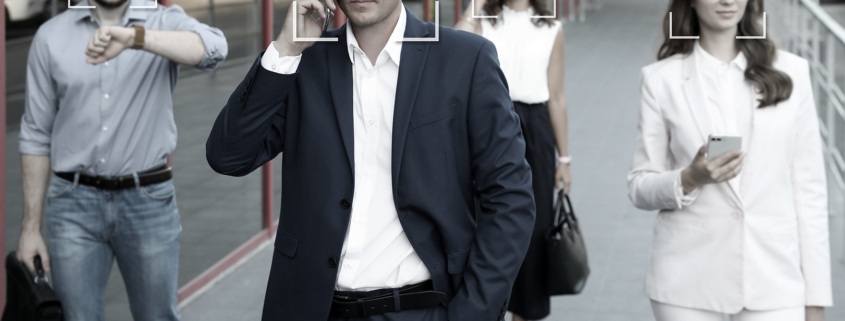Analyzing the Constitutionality of Using Facial Recognition Technology in Law Enforcement
If you look at any science fiction novel from the 1980s, you’ll likely see a reference to facial recognition technology. Who knew that we were only 40 years from it being commonplace technology utilized in our everyday lives? While facial recognition can be useful in some settings, it also has the potential to tread on individuals’ rights and give law enforcement room to overstep their limits.
This is a complex topic being battled out in courtrooms across the country. If you’ve been accused of a crime, it’s important to work with an attorney committed to protecting your rights and freedoms. Call Coumanis & York at 251-336-3121 now.
How Facial Recognition Technology Works
Facial recognition technology looks at photographs or video footage and analyzes individuals’ facial features. After gathering data about an individual’s features, it compares those features to a database of images to figure out who they are.
The process only works with a sizable database of facial images. Data may come from surveillance cameras, government databases, and even social media. The technology detects faces and pinpoints landmarks like eyes, nose, mouth, and eyebrows. These features and their measurements are unique to each person. Upon analyzing an individual’s face, the software maps their face.
This will serve as a comparison photo for any other photo run through the algorithm in the future. When law enforcement runs another picture through the database—perhaps from a surveillance camera or body cam—the database compares that individual’s face to every face it has already mapped. It will alert the user to any potential matches.
Constitutional Challenges
This type of technology raises a number of constitutional concerns. Some have posed questions about its legality under the Fourth Amendment, which protects individuals from unreasonable searches and seizures. Facial recognition technology is used without a warrant and relies on a database of innocent people. Facial scans in public places may not be constitutionally sound.
The Fifth Amendment raises another concern. It protects individuals against self-incrimination. A growing number of mobile devices unlock with the individual’s face, using facial recognition technology. Police may force a person to unlock their device by simply holding the phone up to their face, giving the police access to everything on the phone without the person’s actual consent.
The First Amendment also weighs in here. People have a right to free speech and association. When people fear being pinged by facial recognition technology when out and about, some argue that their First Amendment rights are being violated.
Some have alleged that facial recognition technology violate due process. Arrests based on facial recognition technology may incriminate innocent people, and those who have been accused have a right to fair legal proceedings.
Case Law
A number of cases focused on facial recognition technology have addressed these and other issues. Penn State Law Review recently took an in-depth look at this topic. Case law indicates that facial recognition technology in public places does not violate the Fourth Amendment, but usage in other settings may be a violation.
The ACLU, which often weighs in on topics like this, is suing the FBI, DEA, ICE, and CBP. They are also suing companies in Illinois, filing friend-of-the-court briefs in New Jersey and Florida, and weighing in on legislation.
The Future of Facial Recognition as a Tool for Law Enforcement
This topic has caught the attention of Congress, with legislators and officials across the country keeping a careful eye on how law enforcement uses facial recognition technology to find and arrest suspects. Expect many more court cases against agencies and companies that use this technology in questionable ways. The technology will continue to develop as time passes, becoming increasingly accurate and more efficient.
A lot depends on the public. Everyone knows about facial recognition technology and many people even use it on their mobile devices; however, few have thought about the ways that it can be used to violate their privacy and rights. The more that people learn about this, the more pressure there will be on agencies and legislators to regulate its use.
Accused of a Crime? Call Coumanis & York
Law enforcement has a history of stepping on individuals’ rights to secure an arrest or conviction. Protect yourself by talking to the criminal defense team at Coumanis & York. Schedule a consultation now by calling us at 251-336-3121 or sending us a message online.





Leave a Reply
Want to join the discussion?Feel free to contribute!